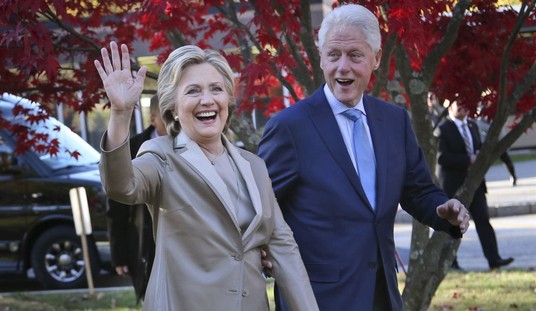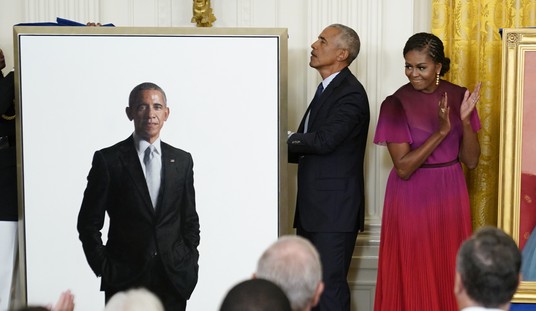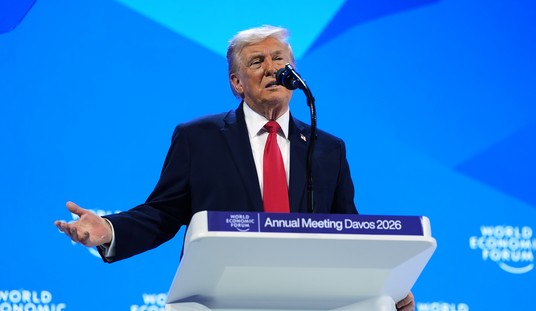In the last few weeks, the University of California, San Diego (UCSD) has been tearing itself apart over racial and ethnic issues. The impetus for the turmoil is the “Compton Cookout,” a “ghetto”-themed off-campus party involving a Las Vegas-based African American comedian who calls himself “Jiggaboo Jones.” The controversial party, held last month to “celebrate” Black History Month, was followed by the reported use of a racial slur on UCSD’s student television station, the hanging of a noose in the library, and the placement of a “Klan-style” pillowcase on a campus statue of Dr. Seuss, of all people.
In response, UCSD has attempted to silence the “hate speech” on the grounds that it makes other students scared or uncomfortable. Associate Students President Utsav Gupta, apparently with the full backing of UCSD administrators, has frozen funding to 33 campus media outlets in order to silence one of them for making an offensive comment about the reaction to the “Compton Cookout” party on the student-run TV station. While no recording of the statement seems to exist, Kris Gregorian, editor in chief of the student “shock humor” publication The Koala, reportedly called those objecting to the party “ungrateful ni**ers.”
As all Americans know, using the “N-word” is one of the most offensive things you can do in our society. It’s no surprise that people on campus, particularly African American students, would be upset by it. Gupta clearly was, as he acted within hours to shut down the TV station and then froze money to the rest of the student media after the comment. Since then, the student government has held meeting after meeting trying to sort out what should be done about the freeze, but the hold on funds has been maintained.
FIRE and the ACLU of San Diego have sent letter after letter to UCSD demanding that media funds be restored and warning that a lawsuit is sure to follow if they are not. With regard to the law, there can be no doubt that FIRE and the ACLU of San Diego are right — it is clearly unconstitutional for a public university or its agents to cut funding to a student media organization because of its expression or content. Gupta and UCSD stand no chance of winning in court.
But are Gupta and UCSD right morally? Is it better for a campus and for our society if “hate speech” is outlawed and punished? Isn’t banning such speech worth it, if doing so makes people feel more comfortable and less threatened on campus?
The answer to all these questions is the same: no.
Why? Well, ask yourself: Who benefits from the censorship of racist speech on campus? This question does not receive nearly enough attention.
The university benefits from a public relations standpoint — censorship of unwanted speech is a quick, easy “cure” and appears to be decisive, effective action. Besides, no college or university wants to look like it is institutionally racist or harbors a bunch of racist students. The student government also “wins” from a PR standpoint, as it has a strong interest in minimizing general divisiveness on campus that might lead to noisy dissent and potentially disruptive protests. Indeed, Gupta cited this “divisiveness” when defending the censorship of the student media, and said he wanted to figure out how to fund student publications without funding “hate speech.”
But you will note that one group is conspicuously missing from the list of beneficiaries of the censorship of racist speech — the group that is itself the target of the racist expression. How is that possible, you might ask? Surely, you might say, silencing racist speech will improve the lot of minority groups on campus because they will feel more comfortable, be less upset, and therefore be able to go about their studies without distraction.
While there’s some real and obvious truth to that, the only problem is that silencing racist speech does nothing to address the underlying problem of racism.
True, it might make things appear to be a little better. But if UCSD truly is a pit of vitriolic racists, silencing their expression will do nothing to change that. In fact, it may only force racism underground, where it can fester and seethe without being confronted by sunlight, which Justice Louis Brandeis famously called the “best of disinfectants.”
Some of the most tangible consequences of racism — unlawful discrimination, unequal treatment, even violence — don’t take place out in the open very often, at least not anymore. The days of politicians like George Wallace bellowing “Segregation today, segregation tomorrow, segregation forever!” are long past. Today’s committed racists and white supremacists are a marginalized group with a diminishing following, yet they still obviously pose a threat.
So what is UCSD telling racists by censoring their speech? Basically, it’s this: Keep your heads down. That’s helpful advice to racists who might otherwise be inclined to talk openly about how inferior they find others to be. It’s not so helpful to the rest of us, though.
If racist expression is censored rather than answered with more speech, a racist’s wrongheaded views won’t be challenged and evaluated in the marketplace of ideas. Instead, they’re likely only to be reinforced in the closed feedback loop of discussion with other racists.
As a young lawyer for the Massachusetts ACLU, FIRE Co-founder and Chairman Harvey Silverglate was called upon to defend a group of neo-Nazis who had committed no crime. He did so successfully, despite the group’s refusal to say even a word to him throughout the process because he is Jewish. It’s hard for me to imagine a more harrowing experience to have as a civil liberties attorney than to be called upon to defend those who, if they had the power to put their ideas into practice, would kill you. I therefore put a great deal of stock in what Harvey says about the ill wisdom of silencing hateful speech: “If there are Nazis in the room, I want to know who they are so that I can keep an eye on them.”
If racist speech is censored rather than exposed, it’s hard to know who the racists are — and harder still to demonstrate the falsity of their ideas. Freedom of speech is what makes this awareness possible. On the other hand, censoring racist speech amounts to nothing more than a cover-up.
UCSD must realize this, so the fact that it appears to be going the “cover-up” route suggests that the powers-that-be at UCSD don’t believe that racism is really that threatening on campus. UCSD Chancellor Marye Anne Fox would undoubtedly argue that she is trying to educate her students about the evils of racism by meeting many of the demands of the Black Student Union and through teach-ins and other educational efforts.
Whatever UCSD is doing, though, it doesn’t seem to be working. The noose in the library turns out to have been hung by a “non-white” female student who claims she didn’t think it would be that big a deal. (What planet is she from?) And the “Klan-style” pillowcase on the statue of Dr. Seuss only happened after two weeks of supposedly intensive anti-racist efforts and sends a muddled message (is it a racist statement or a protest against perceived racism at UCSD?). In another move that is sure to make a convincing argument against racism to UCSD students, the university is also passing out free anti-hate buttons (here’s what they look like). I’m not sure what that’s supposed to do.
Need even more evidence that UCSD isn’t taking fears of racism seriously? You’ve got it. How about this: The student at the center of the controversy, Koala editor Kris Gregorian, the very person who reportedly used the n-word on student TV, has been named to a 15-person committee that is supposed to formulate new guidelines for media organization funding. This makes no sense if Gregorian is perceived as someone who will engage in racially based violence, unlawful discrimination, or harassment. In that case, you would keep him far, far away from the committee. Instead, they put him on it. Whether that’s because they are trying to get input from all sides (as I hope) or because they want some cover when his publication is permanently and unconstitutionally defunded (as I fear), neither would happen if people were really that scared of him.
UCSD is alienating students, getting heaps of bad publicity, and putting itself at risk of a lawsuit by creating a conflict between anti-racism and free speech where there is none. In fact, adherence to the principles of the First Amendment is the way out of this situation, if UCSD would only see it.
Is UCSD honestly worried that adult college students will hear the n-word, or hear about a “Compton Cookout” party, and think, “That makes a very persuasive argument. Racism is obviously an extremely well-reasoned viewpoint”? I would submit that the risk of that happening just about anywhere in the United States is incredibly low. Society’s most effective weapon against racist speech is severe social condemnation. Trying to substitute censorship for this not only fails to change minds, but also gives too much power to authorities who can then use it to silence people whose views they simply do not like.
UCSD could have allowed the social pressure of the marketplace of ideas to mitigate the threat of racism on campus. Instead, it will likely spend tens of thousands of dollars only to be told by a federal judge that UCSD is not free to ignore the Bill of Rights. But hey, it’s just the California taxpayers’ money, and there’s plenty more where that came from, right?









Join the conversation as a VIP Member